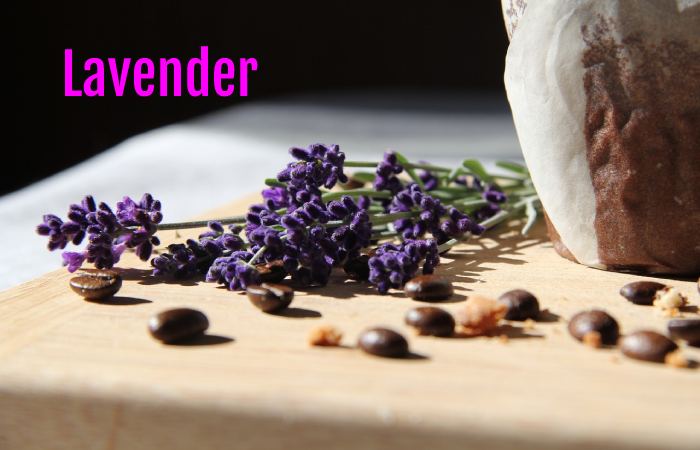Table of Contents
Introduction
Lavender is a plant known by different names such as lhucema, lavender, or lavender. It has been used for millennia. What a delicious lavender scent! Although this plant is widely known for its rich aroma, its benefits are not limited to its smell. It is a lovely plant with calming and also soothing properties. Therefore, it is used to treat specific health problems in the medicinal field. These flowers not only adorn a garden, but they also have healing, anti-inflammatory properties.
What Is Lavender, And What Is It Used For?
- Scientific name : Lavandula
- Class: Magnoliopsida
- Family: Lamiaceae
- Reino: Plants
- Order: Lamiales
- Division : Magnoliophyta
It has been the basis of exquisite perfumes, bath soaps, and flavourings. It originates from the Mediterranean region. However, you can also get it in some areas of Africa and Europe.
There are approximately 40 varieties of this plant, a member of the mint family. However, it is essential to note that Lavandula angustifolia or Lavandula officinalis is the best known and commonly used in essential oils.
Health Benefits Of Lavender

This plant has been note for millennia for its medicinal and aromatic properties. Next, we will indicate the main benefits of this plant.
For Digestion
This plant has antibacterial and antispasmodic properties, which help fight the growth of bacteria in the stomach. It also contributes to better digestion, so lavender infusions after eating are recommend.
Benefits Skin Health
Lavender oil has analgesic, anti-inflammatory and regenerating properties, so it has been the basis of creams and gels to soothe skin irritations.
In addition, the components of lavender serve as an insect repellent, such as RELEC EXTRA STRONG 75 ml, which gives you 9 hours of protection against mosquitoes.
It Serves To Sleep
Sleep loss can fix with better habits. However, if the problem is ongoing, then insomnia may develop.
In this case, taking a bath before going to bed is the best decision. But, if the aroma of lavender is added, it will enhance sleep, as this plant has relaxing properties.
Fight Stress And Anxiety
The delicious aroma of this plant can bring benefits to the nervous system. In this way, its anxiolytic effects can reduce restlessness, stress or anxiety.
Flu, Bronchitis And Colds
The antiviral and antibacterial properties can help patients with a cold or flu. In addition, lavender infusions or tea can provide relief.
For bronchitis, lavender can use to complement the medical treatment prescribe by the doctor.
How Is Lavender Use?
Lavender can use naturally through infusions or pharmaceutical treatments. In this way, it can also be apply to various ailments.
Dyeing
In the tincture format, you can take one teaspoon a day to combat headaches (migraines), stress, depression, etc.
Infusion
The infusions can made naturally with the plant or by buying lavender tea sachets. Similarly, it helps combat nervous fatigue and contributes to better digestion.
Cosmetic
However, cream or gel is used for skin health. This plant has antioxidant properties that fight free radicals. It has led to the formulation of treatments to combat acne and other skin conditions.
Essential Oil
It is the most used and versatile format to take advantage of the medicinal properties of lavender. Some of its utilities in this presentation are the following:
- Insect bites. Approximately ten drops of oil should add to 50ml of water. Please place it in a container as a spray to relieve bite areas. It can also relieve sunburn.
- Muscle pains. oil is use for massage. You have to apply 20 drops of oil in 10 ml of a base oil—place in the area where the ailment is.
Advantages of lavender
- It is a plant that has scientifically proven medicinal properties.
- There are many pharmaceutical treatments based on this plant
- The use does not cause adverse effects if used correctly
Disadvantages Of Lavender
- Excessive use of cause gastrointestinal problems.
- Use in pregnant women can cause abortion
Contraindications To The Use Of Lavender
Lavender is a reasonably safe plant. However, it is necessary to follow the proper dosage and consider who cannot take lavender.
- infusions cannot exceed two cups daily. Similarly, oil can apply only three times a day.
- Pregnant or lactating women cannot take lavender.
In short, we can highlight that is a versatile plant that can provide benefits to digestive health, skin, and also muscle, among others. However, in cases of doubt about its use or consumption, it is recommend to consult a specialist. In this way, health risks are reduced.
Conclusion
It would help if you did not give infusions or apply oil to children under 12. Its use is not optional in patients with specific pathologies such as Parkinson’s, gastritis, epilepsy or liver diseases. It is also vital to refer to your GP to determine whether or not you can use it.

